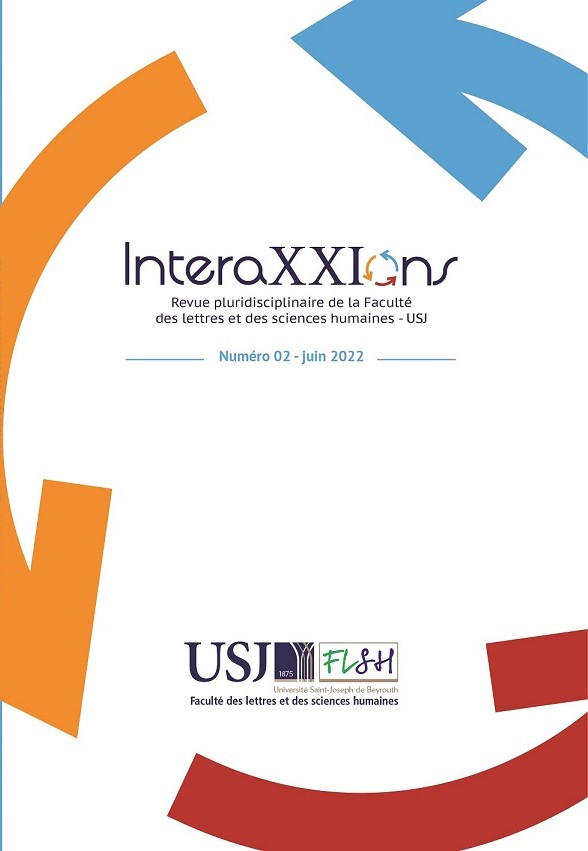Abstract
The double blast of Beirut port disfigured the city and left it horrible and unrecognizable. Thus leaving their city became the only rational act for traumatized Lebanese to re-undertake. The proposed article tackles the exile subject to which Lebanese people seem to be condemned since decades. Through a philosophical and historical highlight, we will shed the light on its recurrence as being the revelator of the problematic of the “collective-being”, while first looking to understand the relation between the ever-changing face of Lebanon and the exile of its citizens. This approach will be later based on the novel of Wajdi Mouawad, – Visage retrouvé – whose narrative is the allegory of the rehabilitation of the unrecognizable and horrifying face of his native city through a bandage writing that defy the distance and the absence. Because the real challenge would be to “recompense the social tissue of a nation” of whom the salvation resides only in the acceptation of the otherness, of the other in his difference. That other with whom Beirut needs to be rebuilt and magnified so that the compensation of the traumatism becomes literally a transfiguration of the disfigured face.

